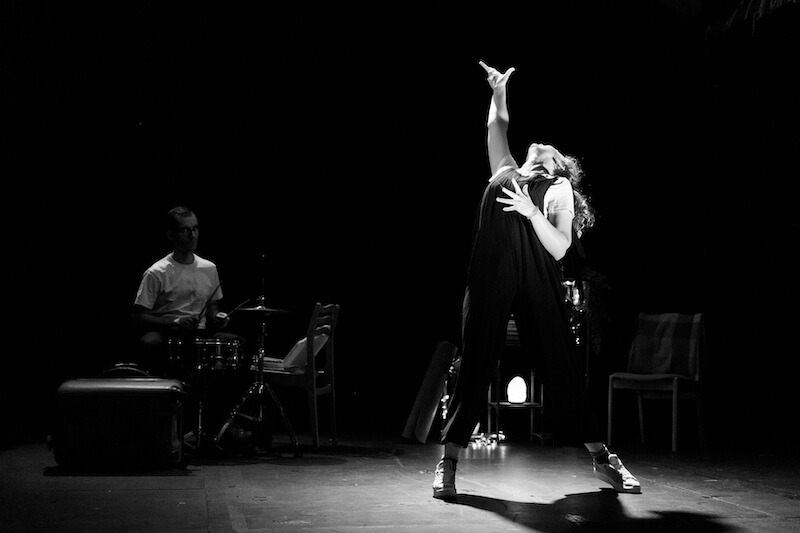Writer: Helen Percival
Director: Marcus Bazley
Dressed in loose-fitting dungarees and her hair up in a messy bun, Helen Percival gives something of an air of a well-intentioned 1970s preschool TV presenter. It’s an impression that is reinforced by her initial perkiness and manic energy.
In a piece that explores a woman’s place in the world, it’s also about finding peace within one’s own body. There’s a duality within Percival’s character – also called Helen – in which her outer body is eager to dance, Charleston-like, to the rhythms of onstage percussionist Manu Joste, while there’s another part of her that is quite alright sitting on her chair, actually.
Through a series of monologues, tone poems and, yes, more manic dancing, Percival doesn’t so much deliver a narrative about a single woman’s journey of self-discovery as present a series of disparate slices that invite us into some recognisably turbulent life events. There is a through line if one cares to follow one, but it’s also possible to regard the show as a series of sketches.
Thus we explore Helen’s obsession with The Only Way is Essex, binging through 180 hours of fake tans and even faker drama; we experience the microaggression from a male partner who, having given her a box of chocolates when she had given up confectionery for Lent, guilt-shames her into breaking her otherwise successful fast; and, later, when back on the dating scene, we witness Helen’s delight at being about to briefly talk about herself before her date interrupts.
While some scenes joke about the interactions between men and women, there are also moments of stillness, even sadness, about Helen’s life. A tale of a walk by the Regent’s Canal, and sitting with two older people as she weeps, is indicative of the touching nature of Percival’s storytelling. However, it is also indicative of the inconsequential feeling that often accompanies the end of many such anecdotes, trailing off into the start of another sketch.
Billed at an hour long and lasting for nearly 15 minutes longer, there is a sense that the advertised running time might suit the piece better. As the concluding segments reveal a desire to share with the audience that in order to be ready to love others, you must first learn to love yourself, there is a sense that RuPaul’s Drag Race ends each episode with the same sentiment, but more pithily expressed. Phoenix is about much more, to be sure, and is entertaining throughout, but it also feels a lot slighter than it believes itself to be.
Reviewed on 4 July 2025
